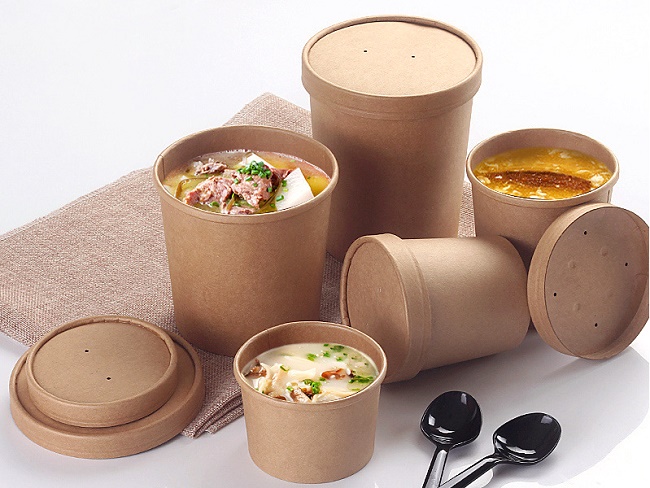Considering how dependent the food industry is on food packaging, it’s a good thing that more and more businesses are becoming aware of the impact they have on the environment. This is why the use of plastic has went down in this sector and today we can come across many food containers, bags, and straws that are made from biodegradable materials that completely break down and decompose into natural elements within a short time after disposal thus reducing the buildup of waste. But things don’t have to stop here. There are also other rather small details that often times can be neglected, but that can still make for a greener food business.

Being mindful about the small sauce containers and their lids used for takeaways can also contribute to a greener business. There are types made from natural materials such as bamboo, which is known for being a super renewable and sustainable choice, (it’s one of the fastest growing plants in the world), therefore good for the environment. Bamboo can also be good for your business too since it is known non-toxic, natural and can keep the food fresher for a longer period of time. Moreover, it won’t affect the taste of the sauce that has been placed inside the sauce containers with lids.
Bamboo is also an extremely strong material so you can rest assured that the sauce containers with lids won’t leak, dampen or cave even when you put hot sauce inside. Lids that are made of durable and recyclable PET plastic are the perfect addition for such containers. Regarding their disposal, PET plastic can be simply put into a plastic waste stream to be recycled.

Next, the choice of pre-wrapped cutlery sets can also contribute to being more eco-friendly. Choosing forks and spoons made of wood for instance makes for a strong and durable solution. Wood as a material is renewable but also biodegradable and compostable. Also, when being eco-friendly is a priority, you should also opt for purchasing recyclable napkins.
Finally, there other things the food industry can rely on when it comes to adopting a greener policy. For instance, each company can agree with local food banks to deliver to them ingredients that would normally be thrown away and in that way contribute to cutting down waste. Furthermore, cafes and restaurants can adopt a paperless system when taking orders and use tablets instead. Simple, yet effective.
























